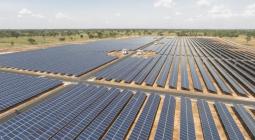AFRICA: Burn launches the first green bond ($10 million) for clean cooking

Clean cooking solutions provider Burn issues $10 million green bonds. The proceeds from these bonds will enable the expansion of its activities in Africa south of the Sahara.
Could the green bond market contribute to access to clean cooking in Africa? We will probably know within a few months thanks to the issuance of the first bonds of this type by the clean cooking access solutions provider Burn, based in Nairobi, Kenya. This transaction, a first in the clean cooking sector, aims to raise $10 million.
“Our decision to issue the first green bond to support clean cooking underlines our belief that financial innovation has the power to drive positive environmental and social change,” says Peter Scott, founder of Burn. This first green bond was supported by DRY Associated which acted as placement agent, and by FSD Africa, a specialist development agency funded by UK International Development, which provided technical assistance.
Access to clean cooking for 2 million households
The proceeds from the bond will allow Burn to increase the production capacity of its Ruiru factory located more than 25 km from the Kenyan capital. At the same time, the company plans to open a new factory in Lagos, Nigeria's largest city with an estimated population of more than 20 million. Burn thus wants to increase its production capacity from 400,000 to 600,000 units per month, for the sub-Saharan market.
The company produces electric and biomass stoves, as well as fireplaces running on liquefied petroleum gas (LPG). “These stoves have consistently been proven to provide significant health, financial and climate action benefits. Funds from the green bond are expected to extend these benefits to an additional 2 million households in 2024 ,” says Burn.
In addition to green bonds, the company is also banking on carbon credits to finance access to clean cooking in Africa. The Clean Cooking Alliance (CCA) estimates that it will be necessary to invest $8 billion to achieve universal access to clean cooking worldwide, while the largest companies in the sector have only been able to mobilize 200 million dollars since 2014. Innovative financing such as green bonds therefore makes it possible to reduce this financing gap, especially in Africa where 900 million people still use wood fires for cooking.






